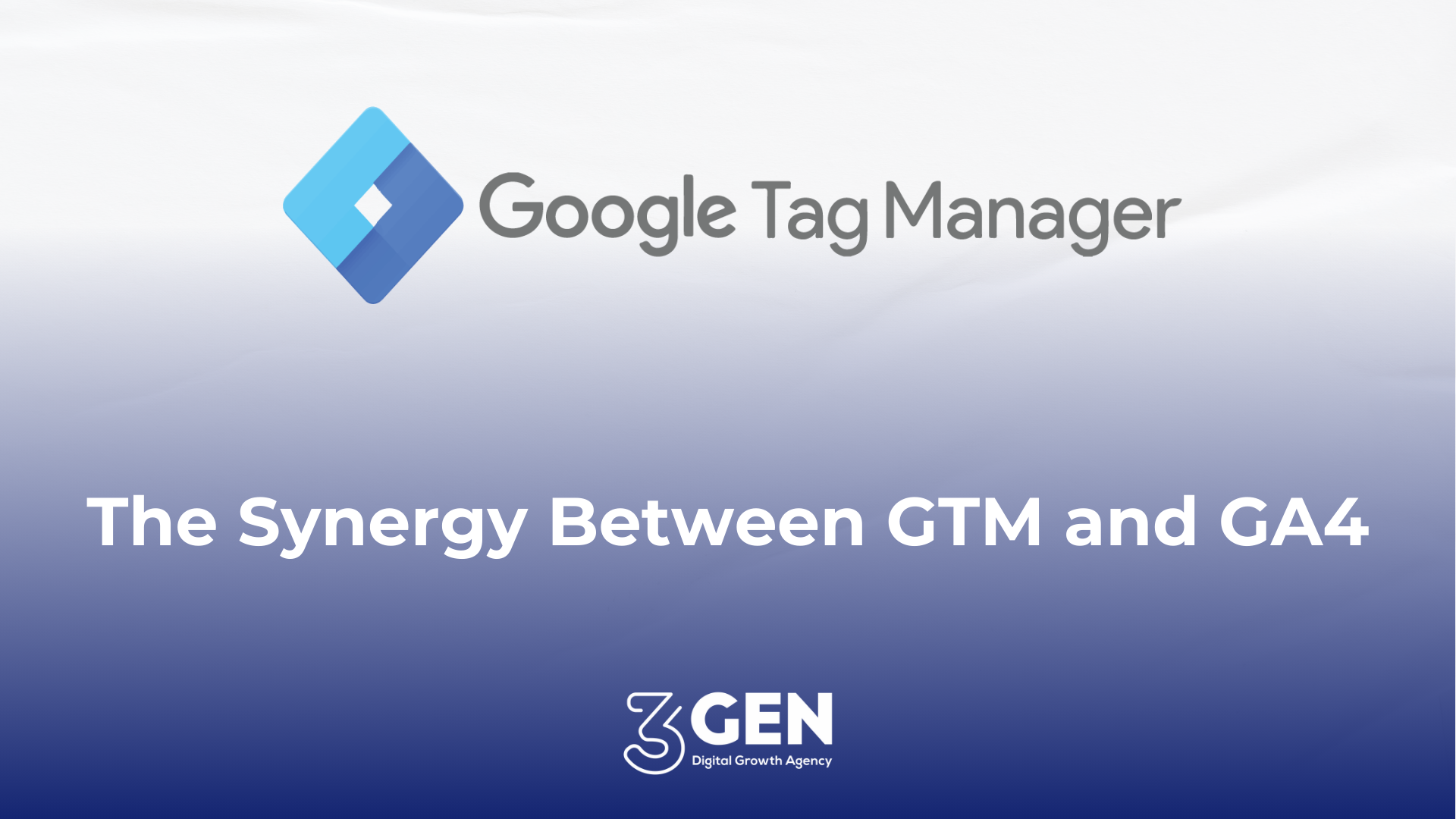The Synergy Between GTM and GA4

Do You Still Need Google Tag Manager in the GA4 Era?
In the ever-evolving landscape of digital analytics, Google's tools have always been at the forefront, guiding businesses in understanding their online presence. With the introduction of Google Analytics 4 (GA4), many are questioning the relevance of older tools, specifically Google Tag Manager (GTM). But does the advent of GA4 render GTM obsolete, or is there a synergistic relationship between the two? Let's delve deeper.
Understanding Google Tag Manager
Before we address the pressing question, it's crucial to understand what GTM is and why it has been an essential tool for digital marketers and website owners. Google Tag Manager is a free tool that allows users to manage and deploy marketing tags (snippets of code or tracking pixels) on their website or mobile app without having to modify the code. This ease of use has made GTM indispensable for tracking conversions, site analytics, remarketing, and more.
The Shift to Google Analytics 4
GA4 is the latest generation of Google's analytics offering, designed to provide a more integrated approach to measuring across platforms and devices. It promises to deliver AI-powered insights, predict user behaviors, and offer a more comprehensive view of the customer journey. With its event-based data model, GA4 represents a significant shift from the session-based model of Universal Analytics.
Can You Use GA4 Without Google Tag Manager?
Absolutely. GA4 can be implemented directly on your website through a piece of tracking code. However, this method requires modifications to your site's code every time you want to track something new or make changes to your tracking setup. Herein lies the advantage of using GTM alongside GA4.
The Synergy Between GTM and GA4
Using Google Tag Manager in conjunction with GA4 offers several benefits:
- Flexibility in Tracking: GTM allows you to implement complex tracking setups without needing to edit your site's code directly. This flexibility is invaluable for tracking custom events or interactions on your site.
- Ease of Management: GTM's user-friendly interface lets you manage all your tags in one place. You can easily add, edit, or disable tags as your tracking needs evolve.
- Enhanced Data Collection: By leveraging GTM with GA4, you can ensure that you're collecting the most comprehensive data possible. This combination allows for the tracking of a wider array of user interactions, providing deeper insights into user behavior.
Do You Still Need Google Tag Manager?
In conclusion, while GA4 offers advanced analytics capabilities, the utility of Google Tag Manager remains undiminished. GTM's ability to manage multiple tags efficiently, its flexibility, and the ease with which it can be used to implement complex tracking setups make it an indispensable tool in your digital analytics arsenal. So, yes, you still need Google Tag Manager, and when used alongside GA4, it can significantly enhance your data collection and analytics capabilities.
Final Thoughts
The digital analytics landscape is continuously changing, and staying updated with the latest tools and technologies is key to leveraging data effectively. Google Tag Manager and Google Analytics 4 are powerful tools that, when used together, offer businesses unparalleled insights into their online performance. Embrace both, and ensure your digital strategy remains agile and informed.



